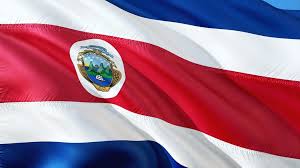The Legal Side of Costa Rica
Featuring Articles Written by Oscar Hernandez, Attorney
Oscar Hernandez is an Immigration Attorney
Located in San Jose, Costa Rica. He & His Team at
Expat Legal Advisors understand the needs
of the Expat who has begun a NEW LIFE in Costa Rica.
They know that the best way to enjoy the Pura Vida Lifestyle is to
have complete knowledge of the Laws of the Land. .
Understanding the Law & Living the Dream. .
Living the Pura Vida lifestyle in Costa Rica means more than enjoying its beaches, jungles and peaceful rhythm.
It means embracing a new way of life built on respect, knowledge and connection.
At Expat Legal Advisors, we believe that the more you understand the laws of the land,
the more fully and confidently you can enjoy the beauty of your new home.
These insightful articles, written by Attorney Oscar Hernández, who practices law in San José,
are designed to guide you through the legal landscape of Costa Rica with clarity and purpose.
From legal residency & real estate to healthcare & daily living, Oscar’s experience and dedication help demystify complex legal topics, empowering expats to make informed decisions
and live freely within the framework of Costa Rican law.
Knowledge is Peace of Mind. . and Peace of Mind is Pura Vida. .
Here, you’ll find practical wisdom, trusted guidance and the tools to help you thrive
as a well-informed member of Costa Rica’s expat community.
Enjoy this Article
Written Especially
for You. .
Understanding Taxes in Costa Rica:
What Every Expat Should Know & Understand. .
Living the Pura Vida lifestyle in Costa Rica comes with many perks, but it’s important for expats to understand their tax obligations. Costa Rica’s tax system is quite unique—it follows a territorial tax principle, meaning only income earned within Costa Rica is subject to taxation. Below is an overview of the key aspects of Costa Rican taxes for individuals and businesses, annual filing duties, and tips to stay compliant while enjoying paradise.
Costa Rica operates on a territorial tax system, which taxes only income from Costa Rican sources. In other words, foreign-sourced income is not taxed in Costa Rica. This principle is established by Costa Rican law: Article 1 of the Income Tax Law (Law No. 7092 - Ley del Impuesto sobre la Renta) defines Costa Rican-source income as income generated exclusively within Costa Rican territory (from services provided, goods located, capital invested, or rights used in Costa Rica). Therefore, if you’re an expat earning income from abroad—such as overseas investments, pensions, or remote work for a foreign employer—this income will not be taxed. It’s important to note that recent tax reforms have reinforced this territorial principle. In 2023, Costa Rica’s Congress reaffirmed through Law 10381 that only income generated “exclusively in the national territory” is considered Costa Rican source. An exception was introduced for certain foreign passive incomes of multinational companies without local substance to comply with international standards, but for most individual expats the rule is simple: foreign income is outside Costa Rica’s tax scope.
Even though foreign income isn’t taxed, expats must still comply with local filing rules for any Costa Rican income. The fundamental premise is clear: anyone earning Costa Rican-source income is required to file annual tax returns reporting that local income. If you have no Costa Rican income at all, you generally wouldn’t need to file a return. However, once you start a local business, earn rental income from a property, or work in Costa Rica, you become part of the tax system.
A few years ago, Costa Rica’s fiscal year ran from October 1 to September 30, but today it aligns with the calendar year (January 1–December 31). Annual income tax returns (declaración de renta) are due two and a half months after the fiscal year ends. In practice, for a calendar fiscal year, the deadline is usually March 15 of the following year (for example, the 2025 tax return for income earned in 2024 is due by March 15, 2025). Corporate entities and self-employed individuals must file by this date. Missing the deadline can trigger penalties and interest under the Tax Code.
Costa Rica imposes progressive tax rates on personal local income. Individual employment or self-employment income is taxed in brackets: lower incomes are exempt, and higher incomes are taxed up to a top rate of 25%. As of 2025, the top 25% rate applies to annual income over roughly ₡20.4 million colones (around $34,000 USD, though this threshold can adjust yearly). Here’s a simplified breakdown of annual individual income tax rates:
₡0–₡4,094,000: 0% (tax-exempt)
₡4,094,000–₡6,115,000: 10%
₡6,115,000–₡10,200,000: 15%
₡10,200,000–₡20,442,000: 20%
Over ₡20,442,000: 25%
These rates apply only to Costa Rican-sourced earnings. For instance, a U.S. expat with solely U.S. income would not pay these taxes, but if they also earn a salary in San José or have a Costa Rican rental property, that local income would fall into these brackets.
If you start a business or incorporate a company in Costa Rica, you’ll encounter corporate income tax (Impuesto sobre las Utilidades). The standard corporate income tax rate is 30% of net profits, calculated as gross income from Costa Rican activities minus deductible expenses. The territorial principle applies to companies too—a corporation is taxed on profits from activities in Costa Rica, while income earned abroad is excluded from the tax base.
To promote entrepreneurship, Costa Rican law provides progressive corporate tax rates for small businesses. If a company’s gross income is below certain thresholds (approximately ₡119 million CRC per year, about $200,000 USD), lower tax rates apply on the first portions of net income:
5% on the first ₡5.64 million of net income
10% on ₡5.64 million–₡8.46 million
15% on ₡8.46 million–₡11.29 million
30% on any income above ₡11.29 million (or for larger companies over the threshold)
In addition to income tax on profits, Costa Rica imposes an annual corporate entity tax (Impuesto a las Sociedades) on all registered companies, even if they have no income. This is a yearly fee that every corporation must pay to remain in good standing, ranging from around $120 to $380 per year, depending on whether the company is active or inactive. This flat registration tax is due every January. It’s important to remember this if you set up a corporation to hold property or vehicles—failure to pay can lead to penalties or even dissolution of the corporation.
Costa Rica’s tax system is straightforward once you understand its territorial nature. For most expats, the key takeaway is simple: foreign income isn’t taxed, but local earnings are. At Expat Legal Advisors, we help expats and international investors stay compliant with Costa Rican tax laws—from personal filings to corporate structuring. Our goal is to make sure you can enjoy the Pura Vida lifestyle without tax worries or complications.
Lic. Oscar Andrés López Hernández
Attorney-at-Law
Expat Legal Advisors
When You're in Need of Legal Advice in Costa Rica,
contact
Oscar Hernandez at
WhatsApp:
506-8543-7650
Email:
legal@expatlegaladvisors.com
Website:
Click on the Image Above
to Visit Our Website
Read More Legal Articles Here




